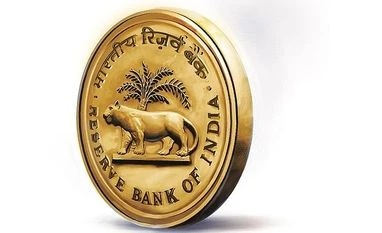“We will not let the IBC process weaken. The Supreme Court verdict does not curtail the government’s powers to give directions to the RBI to initiate recovery proceedings. The government will invoke Section 35AA of the Banking Regulation Act to soften the Supreme Court verdict on the February 12 circular,” said a senior finance ministry official.
This will be within the rules set under the Banking Regulation Act and would be hard to challenge in court. Section 35AA empowers the central government to authorise the RBI “for issuing directions to banking companies to initiate insolvency resolution process”.
If the government wants, this can be done on a retrospective basis, too, said experts, but that could be challenged by companies again. The best way, according to experts, would be to let it be on a prospective basis because defaults would likely recur anyway after some time. The Supreme Court ruling by Justice Rohinton Fali Nariman and Justice Vineet Saran largely centred on
the fact that the RBI should have sought authorisation from the government before sending companies to the bankruptcy code on a case-by-case basis, as laid down under Section 35AA.
However, a circular such as February 12 nets a whole bunch of companies that meet the cut-off set by the central bank, in this case Rs 2,000 crore of outstanding debt for each account.
The central bank had said if the account servicing had been delayed even by a day, it would be in default and a resolution process had to be drawn by the banks and if need be, referred to the National Company Law Tribunal (NCLT) under the IBC.
“Without authorisation of the central government, obviously, no such directions can be issued,” the Bench observed.
The government is ready to walk the extra mile and wouldn’t mind authorising the central bank on each case. Sources said the RBI in consultation with the government might issue fresh guidelines on NPA resolution.
“It will be case-by-case basis. NCLT cases caused by the February 12 circular will have to be seen in the light of new development. But there will be no impact on cases which are out of the ambit of the said circular,” said an official. He also said in the absence of the February 12 circular, the RBI might have to bring back old schemes such as the Scheme for Sustainable Structuring of Stressed Assets (S4A). But the success rate of these schemes has been very low, forcing the central bank to bring the February 12 circular.
Banks had invoked strategic debt restructuring (SDR) in more than 140 cases, but were unable to change ownership even in a handful of cases. In the case of Corporate Debt Restructuring (CDR), of the 591 cases, only 110 succeeded, while 291 cases failed. In 22 cases, handled under different scheme, 20 borrowers were still in default, according to the latest data. Unless the government supports the RBI on a case-by-case basis, bad debt resolution will be back to square one.
“The apex court’s ruling now puts the onus back on banks for ensuring timely and effective resolution of stressed assets,” said rating agency Crisil in a report.
The SC verdict allows rationalisation of the Bankruptcy Code, said Bank of America Merrill Lynch.
“What now? We expect the ministry of finance to form a much-needed public sector asset reconstruction/management company to manage banks' non-performing assets either directly or by bidding at NCLT auctions. Second, there will likely be a greater push to pre-NCLT resolution structures, recommended by the Sunil Mehta committee, as well as sector-specific measures,” said Bank of America.
Clearing the air
What is Sec 35AA of BR act?
It empowers the Centre to authorise the RBI to issue directions to banking companies to initiate insolvency resolution process in respect of a default under provisions of the IBC
Way forward
- SC order does not limit govt powers to give directives to the central bank
- The order will not let IBC process get weak
- RBI to issue directions on NPA resolution
- Restructuring schemes such as S4A being discussed
- Govt may ask RBI to implement the court order on a case-by-case basis
- No impact on cases that are not under ambit of RBI’s Feb 12 circular
To read the full story, Subscribe Now at just Rs 249 a month
Already a subscriber? Log in
Subscribe To BS Premium
₹249
Renews automatically
₹1699₹1999
Opt for auto renewal and save Rs. 300 Renews automatically
₹1999
What you get on BS Premium?
-
Unlock 30+ premium stories daily hand-picked by our editors, across devices on browser and app.
-
Pick your 5 favourite companies, get a daily email with all news updates on them.
Full access to our intuitive epaper - clip, save, share articles from any device; newspaper archives from 2006.
Preferential invites to Business Standard events.
Curated newsletters on markets, personal finance, policy & politics, start-ups, technology, and more.
Need More Information - write to us at assist@bsmail.in
)